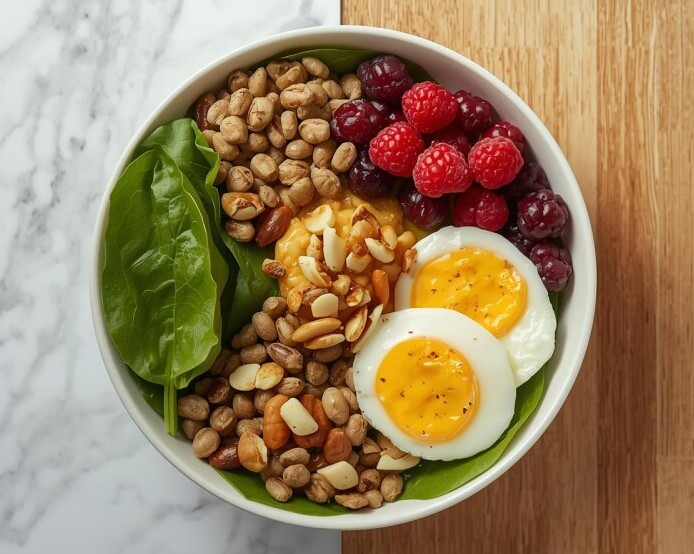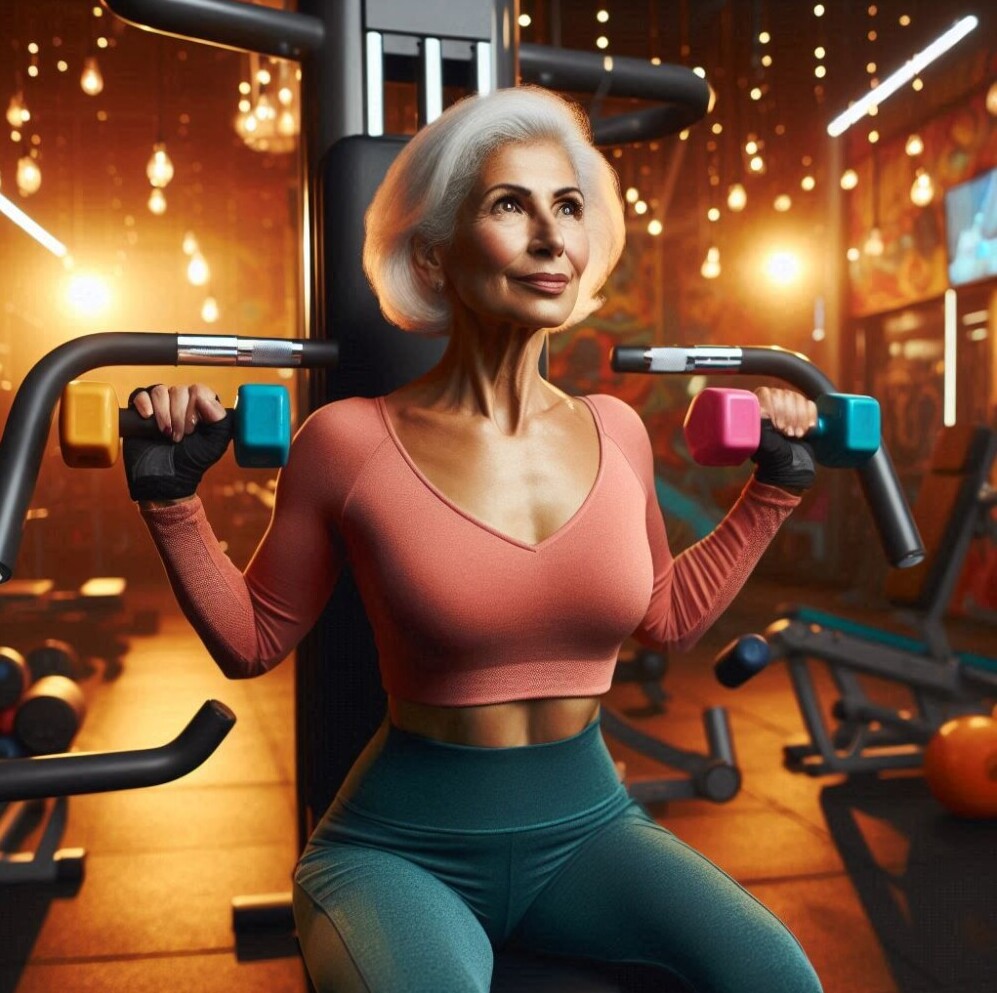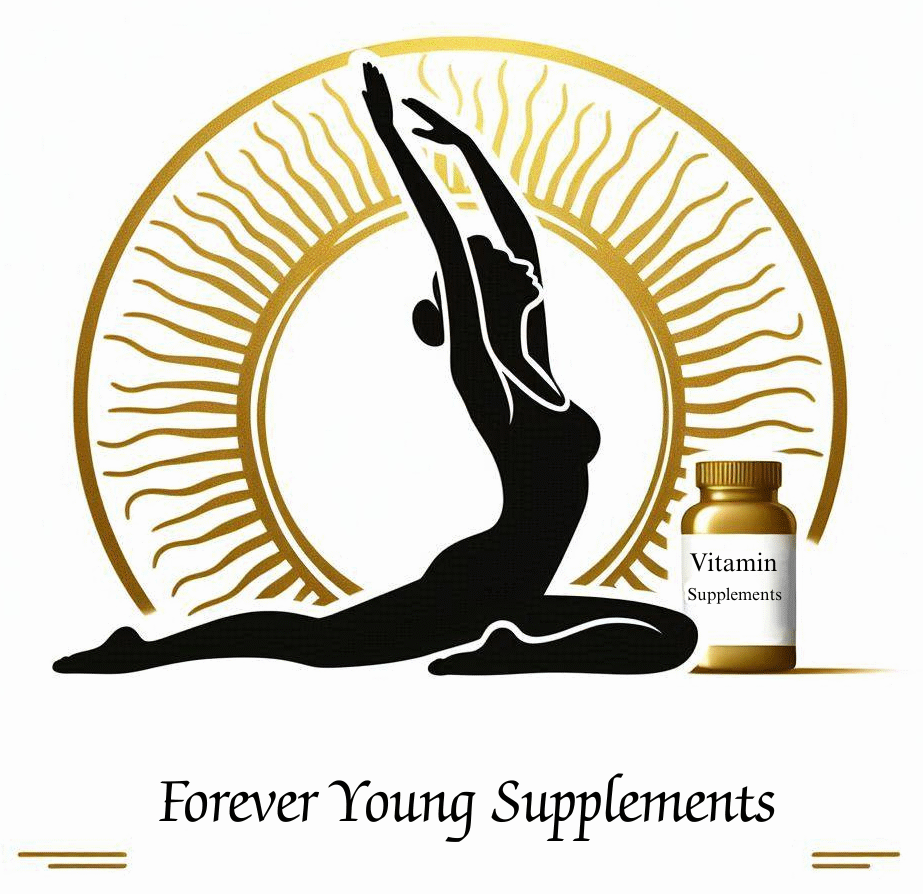Science-Backed Strategies for Hormonal, Cognitive, and Cardiovascular Well-Being for Women

Women’s bodies undergo continual biological transitions — menstruation, pregnancy, perimenopause, menopause — each influencing nutrient needs and health priorities.
Emerging research shows how targeted nutrients and lifestyle choices can support hormonal stability, energy, mood, cognitive function, and cardiovascular health. This article summarises what the latest science reveals about nutritional strategies that truly make a difference for women.
Key Nutrients for Women – What the Science Says
Vitamin D
- Supports bone strength, immune defence, and mood regulation.
- Deficiency is widespread, especially among women who spend limited time outdoors.
- Research suggests vitamin D plays a key role in muscle preservation, hormonal health, and even reproductive outcomes.
- Midlife women benefit particularly: a UK study showed vitamin D supplementation reduced bone-loss markers and improved muscle function.

>>Takeaway: Maintain optimal vitamin D status — via sunlight, fortified foods, or supplements — especially after age 40.
Iron and B-Complex Vitamins

- Iron is critical for oxygen transport and energy production; deficiency is common in menstruating women due to blood loss.
- B-vitamins (B6, B12, folate) are essential for energy metabolism, mood regulation, and during pregnancy for foetal development.
>>Takeaway: Ensure sufficient intake through red meat, lentils, leafy greens, or targeted supplementation under medical guidance.
Calcium and Magnesium

- Key for bone health, muscle function, and nervous-system balance.
- Post-menopausal women are especially vulnerable to osteoporosis due to estrogen decline.
- Combining calcium with vitamin D enhances absorption and bone-density benefits.
>>Takeaway: Support bones with diet (dairy, tofu, fortified milk) and supplementation if needed — weight-bearing exercise remains equally vital.
Omega-3 Fatty Acids (EPA/DHA)
- Critical for heart and brain health.
- Recent studies show women with Alzheimer’s disease have unusually low omega-3 levels compared with men of the same age.
- Omega-3s may also reduce menstrual pain and support mood during perimenopause.
>> Takeaway: Include oily fish twice a week or consider fish-oil supplements for cardiovascular and cognitive support.
Antioxidants and Emerging Nutrients
- Antioxidants such as vitamins C and E, selenium, and coenzyme Q10 protect against oxidative stress.
- Newer evidence supports creatine in women for improved muscle performance and cognitive resilience — especially post-menopause.
>>Takeaway: A diet rich in colourful fruits, vegetables, and whole grains supplies antioxidants naturally; supplements can complement, not replace, real food.
Lifestyle Interactions and Women-Specific Considerations
Hormonal Transitions
- Each life stage alters nutrient demands:
-
- Menstrual years: iron, folate, magnesium support.
- Pregnancy/lactation: increased need for folate, DHA, iron.
- Perimenopause/menopause: emphasis on vitamin D, calcium, omega-3s, and antioxidants to protect bone, heart, and brain.
Physical Activity and Sleep

- Strength training preserves bone and lean muscle; emerging evidence shows it may ease menopausal symptoms.
- Adequate sleep is essential for hormonal rhythm, appetite control, and mental focus.
Cognitive and Emotional Health
- Women experience higher rates of anxiety and cognitive decline with ageing.
- Studies link omega-3 intake and B-vitamin adequacy with improved cognitive performance and lower depression risk.
Life-Stage Blueprint for Women

Ages 20–40: Building Foundations
- Focus on fertility, energy, and hormone balance.
- Nutrient priorities: folate, iron, omega-3s, magnesium, vitamin D.
- Lifestyle: strength training, sleep hygiene, stress management.
Ages 40–55: Perimenopause Transition
- Estrogen fluctuations increase risk for bone loss and metabolic changes.
- Vitamin D, calcium, and magnesium are crucial; omega-3s may reduce hot-flash frequency and mood swings.
- Include phytoestrogen-rich foods (soy, flaxseed, legumes) as natural hormone modulators.
55+ Years: Post-Menopause and Healthy Ageing
- Focus shifts to heart, bone, and brain health.
- Nutrients: vitamin D, calcium, omega-3s, antioxidants, B-complex.
- Regular exercise and protein intake protect muscle and maintain independence.
- One study linked consistent use of antioxidant and B-complex supplements with a later onset of natural menopause.
Evidence, Limitations & Safety
- Not all supplements marketed to women are supported by strong evidence.
- Excess iron or vitamin A can cause toxicity; supplement wisely under professional supervision.
- Women on hormonal therapy or medication should check for nutrient interactions.
- Many trials historically excluded women — always interpret claims critically.
Expert insight:
“Women’s nutrition research is finally catching up. Personalised, evidence-based supplementation — guided by testing — is the future of women’s wellness.”
— Dr. Caroline Hill, Nutritional Scientist, King’s College London (2024)
Practical Takeaways
Diet First:
Prioritise whole, nutrient-dense foods — oily fish, leafy greens, legumes, dairy or calcium alternatives, whole grains, and healthy fats.
Lifestyle Foundations:
- Resistance and weight-bearing exercise.
- 7–9 hours of restorative sleep.
- Manage stress to protect hormonal and cardiovascular health.
Targeted Supplement Strategy:
- Test vitamin D and iron levels regularly.
- Consider omega-3 and B-complex supplementation if diet is low.
- Choose clean, third-party tested products free from fillers.
Conclusion
Women’s health is dynamic and multifaceted — shaped by hormones, age, lifestyle, and nutrition. Supplements can play a meaningful role when guided by evidence and personalised to life stage, but the foundation remains daily habits: balanced diet, consistent movement, adequate rest, and self-care.
An informed, science-driven approach helps women maintain vitality, cognitive sharpness, and emotional balance through every chapter of life.
References / Further Reading
- The Guardian: Should Midlife Women Take Supplements? (2025)
- Women with Alzheimer’s Have Unusually Low Omega-3 Levels (2025)
- Vitabiotics: Vitamins for Women Overview
- Johns Hopkins Medicine: Multivitamin Evidence Summary

